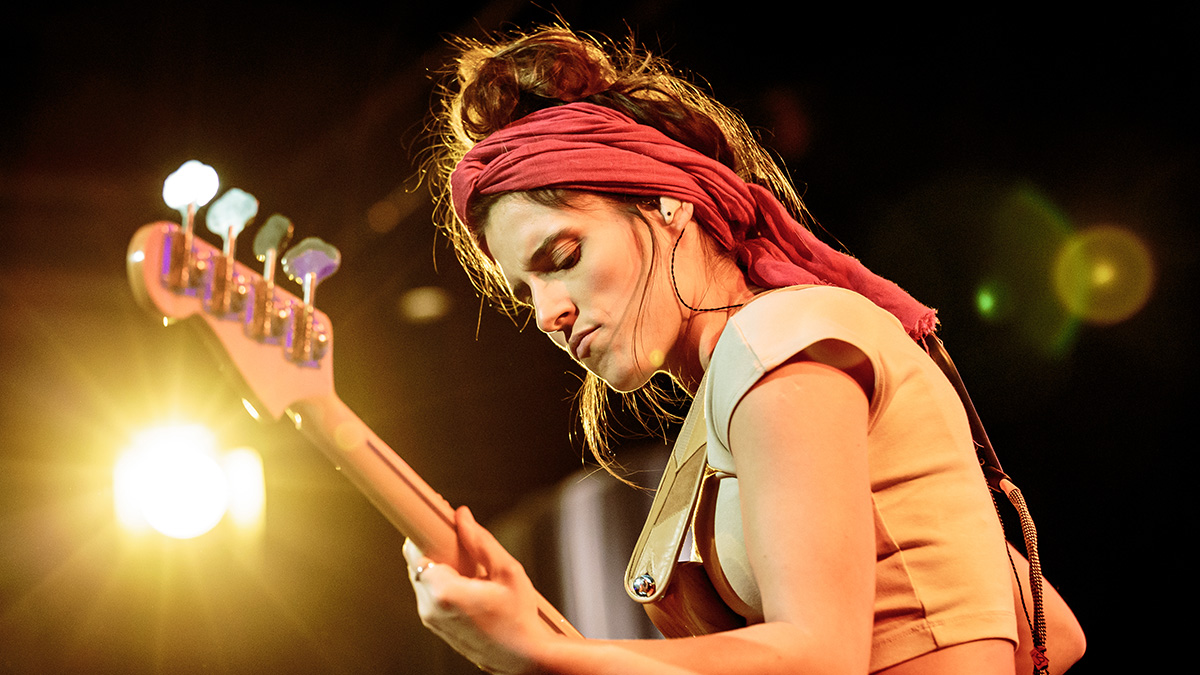
All the latest guitar news, interviews, lessons, reviews, deals and more, direct to your inbox!
You are now subscribed
Your newsletter sign-up was successful
Michael Rhodes, the bass guitar player who amassed one of the most star-studded lists of session credits an instrumentalist could have, has died at the age of 69.
The news was reported by Billboard, which received confirmation of Rhodes’ death via a statement issued by a representative from the bassist’s family.
Rhodes will be remembered as one of music’s most prolific bass players, having worked with some of the guitar world’s biggest names, from Joe Bonamassa and J. J. Cale all the way to Mark Knopfler and Johnny Cash.
Despite becoming a go-to commander of the low-end for many high-profile artists, Rhodes’ bass-playing journey actually began, like many who eventually end up playing four-strings, on a regular guitar that he taught himself to play.
Having started playing at the age of 13, Rhodes began performing and recording professionally as a guitarist, before switching to the bass. In the late ‘70s, he settled in Nashville following stints in Louisiana and Austin, from where he began building his formidable resume.
With a few local bands under his belt, including The Nerve, Rhodes was hired into the Tree Publishing house band – a gig that saw him play on demo recordings for numerous artists.
His versatile repertoire spanned various genres, though Rhodes’ work was rooted in blues and rock guitar music. In the early years of his esteemed career, Rhodes featured alongside J. J. Cale, Dolly Parton, Lonnie Mack and Hank Williams Jr., before the ‘90s saw him collaborate with Vince Gill, Etta James, Larry Carlton, Elton John, Mark Knopfler, John Fogerty, Dixie Chicks and Brian Wilson.
All the latest guitar news, interviews, lessons, reviews, deals and more, direct to your inbox!
Noted for his consistent and confident low-end handling, as well as his musical ability regardless of the artist he was playing with, Rhodes also played alongside the likes of Lionel Richie, Joan Osborne, the Highwaymen, John Oates, Willie Nelson and Stevie Nicks.
As well as his session credits, Rhodes also played in a collection of well-known supergroups local to Nashville along the side, including The Fortunate Sons with Gary Nicholson, The Players with Brent Mason and TAR with Guthrie Trapp.
From 2013 onwards, Rhodes became the session bassist for Joe Bonamassa, helping the bluesman to perform and record numerous live and studio albums over an eight year period, including 2013’s Tour de Force: Live in London, 2014’s Different Shades of Blue and 2020’s Royal Tea.
In a 2018 interview with Bass Guitar magazine, Rhodes imparted some words of advice to younger artists, and reflected on how he was able to navigate such an eclectic mix of session appearances, saying, “The studio is a great equalizer, because the artists tend to be on their best behavior.
“The artist ego goes away, because they’re there to work, not goof around,” he went on. “Your job is to try to figure out how to stay in the game – like, what’s my method of communication here? You’re just feeling out the vibe.
“My advice for up-and-coming players is to shut up and listen. Music is like having a conversation, you have to listen for the most part. The best session players are the ones who are good listeners and can take suggestions.
“You have to leave your ego out of it. Do what is asked of you and don’t slow the process down; in other words, make sure that you’re prepared and all your gear is in good order.”
In 2019, Rhodes was inducted into the Musicians Hall of Fame. According to Rhodes’ wife, he was listening to John Coltrane before he passed away. “He really loved jazz and John Coltrane, all those guys,” she said. “It fed him, always.”
Rhodes’ family has requested donations be made to the Music Health Alliance, which supports musicians who are in need of healthcare and medical aid.

Matt is the GuitarWorld.com News Editor, and has been writing and editing for the site for five years. He has a Masters in the guitar, a degree in history, and has spent the last 19 years playing everything from blues and jazz to indie and pop. During his GW career, he’s interviewed Peter Frampton, Zakk Wylde, Tosin Abasi, Matteo Mancuso and more, and has profiled the CEOs of Guitar Center and Fender.
When he’s not combining his passion for writing and music during his day job, Matt performs with indie rock duo Esme Emerson, and has previously opened for the likes of Ed Sheeran, Keane, Japanese House and Good Neighbours.
